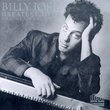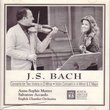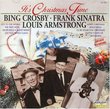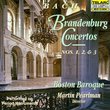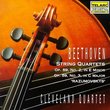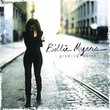| All Artists: Franz Joseph Haydn, Georg Solti, London Philharmonic Orchestra Title: Haydn: The London Symphonies Nos. 93-104 Members Wishing: 0 Total Copies: 0 Label: Decca Release Date: 10/12/2004 Album Type: Box set, Collector's Edition Genre: Classical Styles: Historical Periods, Classical (c.1770-1830), Symphonies Number of Discs: 4 SwapaCD Credits: 4 UPC: 028947555124 |
Search - Franz Joseph Haydn, Georg Solti, London Philharmonic Orchestra :: Haydn: The London Symphonies Nos. 93-104
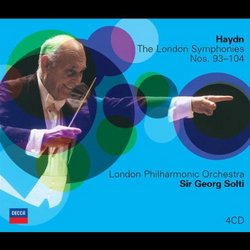 | Franz Joseph Haydn, Georg Solti, London Philharmonic Orchestra Haydn: The London Symphonies Nos. 93-104 Genre: Classical |
Larger Image |
CD DetailsSimilarly Requested CDs
|
CD ReviewsRomantic Haydn M. Seeley | Charlotte, NC | 02/15/2005 (4 out of 5 stars) "I am delighted to see these Solti recordings of The London Symphonies reissued. The London Symphonies have been interpreted in various ways by several different conductors. No one has a definitive interpretation. Each has their own strength and weaknesses. Solti's are big, imposing readings in the Romantic mode yet they catch the spirit of Haydn's wit and joy. While these performances have a firm, weighty tone, they are extemely fleet and nimble. They are never ponderous or heavy-footed. Rather, they are sparkling, vivid; naturally supple interpretations. Sometimes Solti's tempos can be too fast, especially in the 97th. One wishes for a larger bassoon belch in the 93rd. Solti's 95th is unsmiling for the most part. But now I am quibbling. I heartily commend these recordings for your Haydn collection." The most enjoyable Haydn I own Timothy Dougal | Madison, Wi United States | 07/29/2006 (5 out of 5 stars) "I bought this set with some trepidation, because I had a hard time conceptualizing what Solti's Haydn might be. The fullness, sheer size and gloss of the sound at first struck me as stylistically incorrect, but that impression rapidly faded, and now Solti's Haydn easily eclipses the competing sets I've owned. The overrated Davis set is positively lackluster by comparison, (and contains annoying noises from the musicians). Solti's outer movements are a little faster than Davis', the inner movements a little slower. But this scarcely matters, as every note on these recordings is played with such warm-hearted exhuberance and recorded so brilliantly, each symphony seduces the listener on its own. The recordings are remarkably consistent despite multiple producers and venues over a large span of time. Every recording is very clean and contains no distracting noises even on my in-th-ear headphones. I've got other Haydn by Goodman, Muller-Bruhl, Marriner, Mackerras, La Petite band and others, but this set is the one I listen to the most." Clean performances in lovely sound, but that's not enough Santa Fe Listener | Santa Fe, NM USA | 04/27/2007 (3 out of 5 stars) "No one would expect the fire-eating Solti to shine when it comes to Haydn. But Solti's driven style becomes quite tame in the classical repertoire--the same thing happens in his Beethoven. Everything here is cleanly played, and the sound provided by the Decca engineers falls gracefully on the ear. The London Phil. has the distinction of appearing on two "London" symphony cycles, this one and another on DG with Eugen Jochum. They play better for Solti, and his direct, unfussy approach, though semi-anonymous, is preferable to Jochum's plodding dullness and heavy hand.
That said, I never smiled while listening to these readings. There's no humor to be had here, or depth, unlike in the classic recordings by Beecham and equally impressive Bernstein. Tempos are moderate throughout, with no surprises in either the fast or slow movements; happily, the Minuets are light-footed. I won't run through each symphony because they all follow the same model---each is precise, respectful, and unexceptionable. For me, that's not enough to make great music come alive." |


